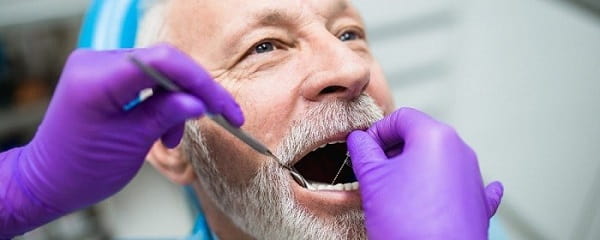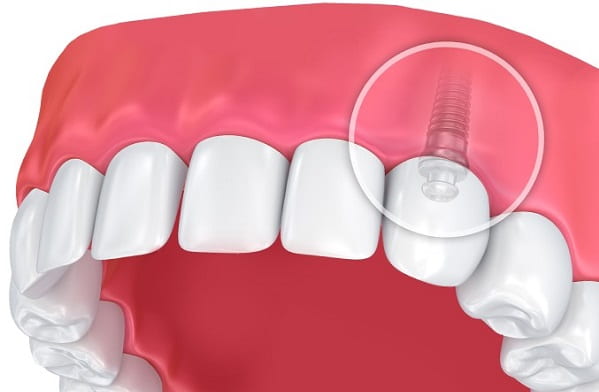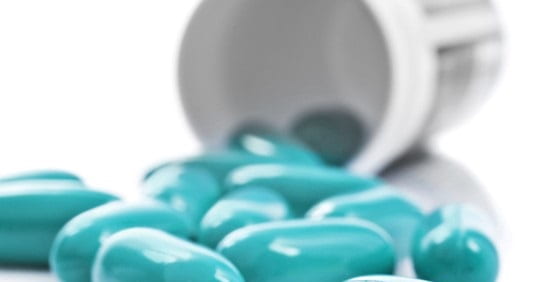Making the decision to have dental implants isn’t one which is taken lightly, after all we’re talking about a surgical procedure and a treatment which is expensive when compared to other methods of tooth replacement such as bridges and dentures. Although the success rate of dental implants is high at around 95%, implant failure when it does occur often happens in the first few days and weeks following surgery, which is why it’s extremely important that patients do all they can to aid recovery.
Recovery times from Dental Implant surgery can vary depending upon the individual case, the number of teeth affected, the individual patient, and importantly, how you manage your recovery process. Here are top tips for aiding recovery after dental implant surgery.
What Is a Dental Implant?
A dental implant is a type of prosthesis dentists use to replace lost teeth. Implants are a small titanium post dentists insert into your jawbone, on top of which the dentist attaches:
- A fixed bridge
- A single crown
- A full denture
- A partial denture
Once the dental implant integrates into your bone, the dentist connects a structure called an abutment to the implant used to attach the artificial tooth or teeth.
You can use dental implant surgery as an alternative to bridgework if your natural teeth roots won’t allow it or if dentures don’t fit well.
How your dentist performs dental implant surgery depends on the condition of your jawbone and the type of implant. The dental implant surgery could involve a few procedures. The big advantage of implants is they provide a solid support for the new teeth you’re going to get. This requires your bone to heal around your implant tightly. Since it takes time for your bones to heal, the entire process can take several months.
How Long Does It Take to Recover From Dental Implants?
Chances are, you have questions like how long does it take for gums to heal after dental implants? Is there throbbing pain after dental implant, or how long do dental implants hurt?
Whether your dentist performs your procedure in one stage or several, you could experience discomfort — like you would with many other dental surgeries. This discomfort could be:
- Bruising of your gums and skin
- Swelling of your face and gums
- Minor bleeding
- Pain at the implant area
You might require pain medicines or antibiotics following your implant procedure. If discomfort, swelling or any other issue becomes worse in the days following your procedure, contact your dentist.
After every surgery stage, you might need to consume softer foods until your surgical area heals. Generally, your dentist will use self-dissolving stitches. If not, they’ll need to remove them.
How Long Do Dental Implants Take to Heal?
There’s no set recovery time for all implant patients since each patient’s unique oral condition will affect the surgery. The following could affect your recovery time:
- The number of teeth you have extracted and implanted (single, multiple or whole jaw)
- If your bone is healthy enough for the implants to adhere to
- If your procedure requires bone grafting
- Individual differences and healing time
Your tolerances and lifestyle choices may greatly impact your dental implant healing time.
If you had a simple implant placement procedure with no grafting, you would likely experience very little to no swelling or discomfort after your operation. If you do, it will likely only last for a few days. The dentist may prescribe you medication to help with any pain. After around seven to 10 days, you should be able to get back to your regular diet routine. However, sometimes patients may have to stick with a soft diet after their surgery for up to six weeks. The dentist will let you know.
How Long Do Dental Implants Hurt?
They type of implant surgery you have will determine how much dental implant procedure pain you experience:
- Simple procedure:If you only had one tooth replaced, your bone is healthy, and you require no grafting, you should only experience minimal discomfort.
- Moderate procedure:Many individuals undergo a moderate implant procedure and typically experience some swelling, bruising and discomfort following their procedure.
- Complex procedure: Some individuals might experience a longer recovery time. For those who receive many implants or experience a difficult procedure, it could cause more pain, and the dentist will likely recommend eating only soft food for around six weeks after the procedure.
Is There Severe Pain After Dental Implant?
Here you’ll find a general pain timeline for your recovery time:
Dental Implant Pain After 1 Week
At this point, it’s normal for you to experience some pain.
Dental Implant Pain After 2 Weeks
Your pain should have gone away at this point. If not, call your dentist immediately as it could indicate an infection.
Dental Implant Pain After 3 Months
If you’re experiencing pain at this point, it could be due to one of these reasons:
- Poor blood supply
- Autoimmune disease
- An infection
- Interactions with other medicines
- Allergic reaction
- A complication known as overloading
- Tissue or nerve damage
- Your body rejecting the implant
In any of these cases, call your dentist right away.
What Are Some Important Dental Implant Recovery Tips?
Once you’ve gotten through your dental implant surgery, you’ll have to take care of your mouth, so your recovery is easy and quick. Here are some post-dental implant tips:
rest
After your dental surgery appointment, take the rest of the day off to get some rest. If the dentist gave you a sedative, you’ll likely still feel drowsy. Therefore, you shouldn’t do anything where you’ll have to concentrate, such as driving. You should also avoid strenuous activities. Don’t lift or bend anything that could dislodge the blood clots and lead to bleeding. When it’s time for you to go to bed, elevate your head using extra pillows.
Be patient
Dental implants aren’t a quick fix solution to missing teeth and the entire healing process can take up to nine months. The reason for this is that osseointegration needs to take place which is when the bone and soft tissues surrounding the implant post will eventually fuse together to create a strong platform which can support a dental appliance such as a dental crown, bridge, or denture.
Follow Instructions
Your dentist may tell you to avoid brushing and mouthwash at first since your mouth might be too sensitive for standard oral hygiene at this point. They may tell you to avoid brushing the tender area, but to clean your other teeth as you usually would. They may have you rinse with salt water using eight ounces of warm water mixed with a 1/2 teaspoon of salt.
Your mouth may be too painful to open very wide, but after 24 hours, you should resume regular oral hygiene practices. This being said, do not reach for mouthwashes or hydrogen peroxide rinses for at least 14-days post-surgery.
Apply Ice
You may have bruises or swelling of your face, which is normal. Apply ice to your jaw for 30 minutes, remove for 20 minutes, and repeat for the first 24 hours. If both sides of your mouth had surgery, apply the ice to each side of your mouth, switching from side to side. Your swelling should lessen after a few days. If it becomes worse, you notice pus, or you have a fever, it could be an infection. Let your dentist know immediately.
Guard the Blood Clot
Do your best not to disturb the clot as it’s healing the wounds in your mouth. Therefore, don’t drink carbonated beverages, alcohol or drink from a straw. Also, don’t smoke for a few days after your operation and try to avoid spitting.
Be Careful of What You Eat
An hour after surgery, when you are able to remove the first set of gauze you may have something soft to eat. Avoid hot liquids or drinking from a straw for the first 24 hours. After the first day you can move on to firmer foods, but let your comfort level be your guide. Do not eat anything that causes pain while you recover.
Soft, cool foods after your procedure are good. Some solid options are:
- Applesauce
- Yogurt
- Instant oatmeal
- Lukewarm soup
Avoid foods too cold, hot, chewy, tough or spicy.
Take your medicine
In the first few days following implant surgery it’s vital that you take the medicine prescribed by your dentist. This will help to alleviate any pain and discomfort felt once the anaesthetic has worn off. It you’ve been given antibiotics to take then be sure to finish the whole course.
You Will Most Likely Have Mouth Stitches
Not all oral surgeries require stitches in the mouth, but the reality is that dental implants require stitches to aid in the healing process. This being said, these stitches are generally dissolvable and will disappear themselves in 3-5 days after your surgery.
Depending on the severity and location of your dental implant surgery, some stitches may need to be removed or will take longer to dissolve.
Pay Attention to signs
Keep a lookout for fever, infection or swelling that lasts more than a couple days. Also, pay attention to your breathing or swallowing for any troubles. You could also suffer an allergic reaction to the anesthetic the dentist gave you. If so, contact your dentist immediately, and go to the ER.
Follow-up
During the healing period you’ll be asked to visit your dentist for regular progress checks. It’s important that you keep all of these appointments and if you have any problems in between appointments, then please call the dentist right away to get your questions or concerns addressed. This will help prevent any complications during treatment and is important for a successful outcome.
Is there anything that will negatively affect the implant healing?
A patient’s recovery is hugely impacted upon by their lifestyle choices and tolerances. For example; If you are a smoker it is important that you minimise or preferably avoid smoking altogether for a week or so after any dental implant surgery. The truth is that smokers have a higher risk of dental implant failure. This is due to the fact that smoking cigarettes negatively affects the overall health and hygiene of your mouth.
Due to this increased risk, smokers should avoid lighting up a cigarette in the first few weeks following this procedure. Smoking interferes with the natural healing process of the mouth and puts you at greater risk of infection.
This is especially important for those who have undergone more severe dental surgeries and bone grafting.
Dental implant recovery time and the healing process can be delayed or impaired from smoking, poor diet, excessive alcohol use and lack of dental care such as regular brushing. Maintaining oral hygiene and home care is essential to recovery and helps to ensure that no plaque or infection builds up around the gums. The dentist and hygienist will advise you of the best way to look after your implant(s).
How Long Do Teeth Implants Last?
Can dental implants last forever? In other words, how long do dental implants last? Unlike your natural teeth, implants aren’t vulnerable to dental disease like decay, but your gum health is essential for maintaining lasting dental implant success. Caring for dental implants through routine professional cleanings, dental check-ups and conscientious home care are key to dental implant sustainability. Every individual is different, however. The success of your dental implants will rely on planning and diagnosis, your medical history and lifestyle choices during your healing.
Some things you can do to protect your remaining natural teeth and help your dental work are:
- Practice good oral hygiene: Just like with your regular teeth, you need to keep your dental implants clean. Interdental brushes and other specially designed brushes slide between your teeth which help clean around your teeth, metal posts and gums and in between the nooks and crannies.
- Visit your dentist routinely: Be sure you schedule dental check-ups to ensure the proper functioning and health of your implants, and follow your dentist’s advice regarding professional cleanings.
- Avoid damaging habits: Never chew on hard candy, ice and other hard items that could break your crowns and even your natural teeth. Don’t use caffeine and tobacco products that can stain your teeth. If you grind and clench your teeth, get treatment.
What Is the Failure Rate of Dental Implants?
Most implants are successful. However, sometimes the bone can fail to fuse to the metal implant sufficiently. Also, things like smoking can contribute to implant complications and failure. If your bone doesn’t fuse correctly, the dentist will remove the implant, clean the bone up and try the operation again in a few months.
If you have a failing tooth that needs to be removed, the implant process is extended because we need to wait to for the bone to heal before we can place an implant to restore the tooth. Often times a bone graft is placed in the tooth socket to hold the bone open and make it easier to place an implant at a later date.
In rare situations, an implant can be placed the same day as the tooth is removed. This is great because it can save our patients time in healing (4-6months) and get their teeth faster. However, not all patients or teeth are candidates for immediate implants. Patients should speak with their dentist about looking at a CT scan and seeing if they are candidates for immediate implants.









